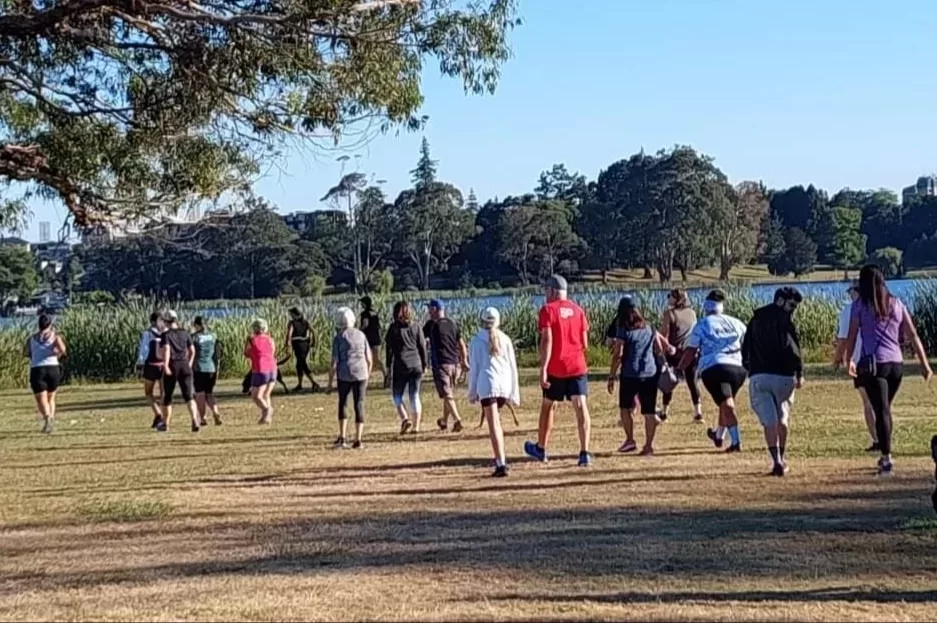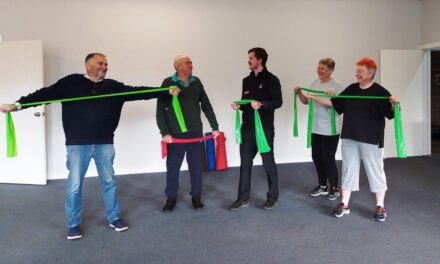Tim Bach
This is International Men’s Health Week (June 12-18), a week which is celebrated in June each year to highlight the importance of men’s health and to promote and support the health and wellbeing of men and boys in our communities.
When we talk about men’s health, we need to think about both physical and mental health, about maintaining and improving health and about preventing disease, not just about treating disease.
One of the best things you can do to improve health and prevent disease is exercise. More and more research is demonstrating the many beneficial effects of exercise for physical and mental wellbeing. While we think of exercise as a method for weight control, exercise also reduces the risk of cardiovascular disease and diabetes, reduces blood pressure, reduces the risk of cancer, reduces anxiety and depression, helps with stress management and reduces all-cause mortality.
But in the depth of a cold, drizzly Daylesford winter, it’s easy to sit by the fire with a good book and open another bottle of red. There are real barriers to exercise and activity in Daylesford and Hepburn. Research has demonstrated that access to facilities is an important facilitator of exercise behaviours. Those facilities are in short supply in our area. Cold weather and short days are important barriers to a healthy, active lifestyle, and we have those in abundance.
How much exercise do we need?
Australian exercise guidelines state that we do moderate intensity exercise at least 150 minutes each week. In terms of a daily dose, that’s 30 minutes per day for five days each week. A simple way of determining exercise intensity is that if you can talk, but not sing, that’s moderate intensity exercise. If you prefer more vigorous activity (when you can only speak a few words), the recommended minimum dose is half that much or 75 minutes per week. You should also do strengthening exercises (squats, push ups, light dumb bell exercise) two days each week. Elderly adults should also include some balance exercises in their exercise program.
What can we do to increase our activity?
Here are a few tips if you are struggling to start or maintain an exercise program:
- Consult with a health professional. If you are starting an exercise program, consult with your doctor or a health professional like a physiotherapist or exercise physiologist. They will advise you about your ability to exercise and about the type and intensity of exercise you should do. Starting without proper advice is an invitation to injury and injuries are a quick way to bring your exercise ambitions to an end.
- Socialise while you exercise. Find a partner, friend or group to exercise with. Plan a daily walk around the Lake with someone else. If you have a commitment, to meet someone, you will be less likely to put it off. If you commit to walking on a treadmill in your garage, by yourself, it won’t happen.
- Build up slowly. Don’t start off with the routine you did when you were 20. Start gently and build up. Reread the first point about injuries.
- Don’t focus on your weight loss. When you start an exercise program, you might find that you lose a kilo or two right away and then become dispirited because the weight loss doesn’t continue. But you should focus on other things like the increased vitality you feel, the reduced stress and anxiety, the improvement in your fitness. The weight loss will come eventually.
- Include some variety. Change the route that you are walking or running. Ride a bicycle or go for a swim to break up the routine.
- Monitor your activity. You don’t need a Fitbit to keep track of your exercise (although there is some evidence that they improve exercise program compliance). Keep track of your distance or the time you spend exercising each week. Set a goal for your distance or time. Modify your goals as your fitness improves.
- Monitor your progress. Pick a walking or jogging route that you will do on a fortnightly or monthly basis and time yourself. Monitor changes in your time for the exercise task.
- Prioritise your exercise. Plan a time for exercise each day and stick to it. Don’t let other things take a higher priority. Plan a walk before breakfast or during your lunch break.
- Consult the weather forecast. If it’s going to rain in the morning, plan your exercise for the afternoon. And invest in some appropriate exercise clothing. Remember that there’s no such thing as bad weather, only unsuitable clothing.
Finally, enjoy yourself. Enjoy the improvements you will undoubtedly notice. Enjoyment of exercise and the positive reinforcement of incremental improvements are are strong motivators and will help you maintain your exercise program.
Tim Bach is a Daylesford resident and the editor of The Wombat Post. He has a PhD in biomechanics and in his former academic career he was an Associate Professor in exercise, sport science and rehabilitation.





